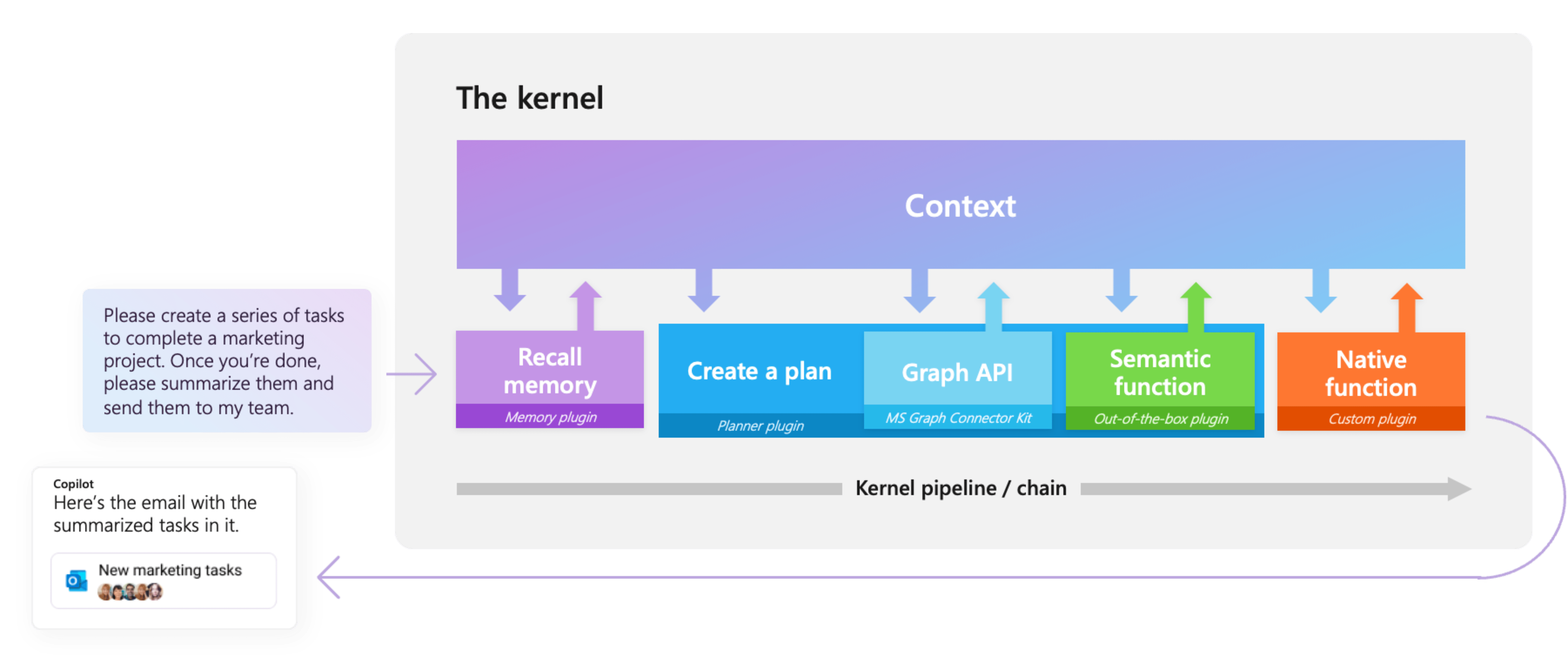Welcome to the Semantic Kernel for Java. For detailed documentation, visit Microsoft Learn.
Semantic Kernel is an SDK that integrates Large Language Models (LLMs) like OpenAI, Azure OpenAI, and Hugging Face with conventional programming languages like C#, Python, and Java. Semantic Kernel achieves this by allowing you to define plugins that can be chained together in just a few lines of code.
What makes Semantic Kernel special, however, is its ability to automatically orchestrate plugins with AI. With Semantic Kernel planners, you can ask an LLM to generate a plan that achieves a user's unique goal. Afterwards, Semantic Kernel will execute the plan for the user.
For C#, Python and other language support, see microsoft/semantic-kernel.
The quickest way to get started with the basics is to get an API key from either OpenAI or Azure OpenAI and to run one of the Java console applications/scripts below.
- Clone the repository:
git clone https://github.com/microsoft/semantic-kernel-java.git - Follow the instructions Start learning how to use Semantic Kernel.
The fastest way to learn how to use Semantic Kernel is with our walkthroughs on our Learn site.
- 📖 Overview of the kernel
- 🔌 Understanding AI plugins
- 👄 Creating semantic functions
- 💽 Creating native functions
- ⛓️ Chaining functions together
- 🤖 Auto create plans with planner
- 💡 Create and run a ChatGPT plugin
We welcome your contributions and suggestions to SK community! One of the easiest ways to participate is to engage in discussions in the GitHub repository. Bug reports and fixes are welcome!
For new features, components, or extensions, please open an issue and discuss with us before sending a PR. This is to avoid rejection as we might be taking the core in a different direction, but also to consider the impact on the larger ecosystem.
To learn more and get started:
- Read the documentation
- Learn how to contribute to the project
- Join the Discord community
- Attend regular office hours and SK community events
- Follow the team on our blog
This project has adopted the Microsoft Open Source Code of Conduct. For more information see the Code of Conduct FAQ or contact [email protected] with any additional questions or comments.
Copyright (c) Microsoft Corporation. All rights reserved.
Licensed under the MIT license.


